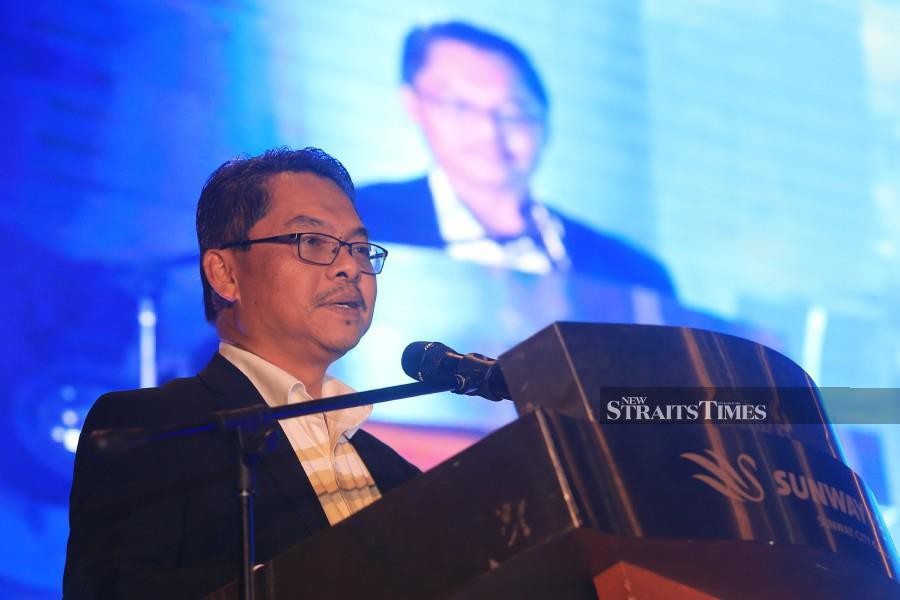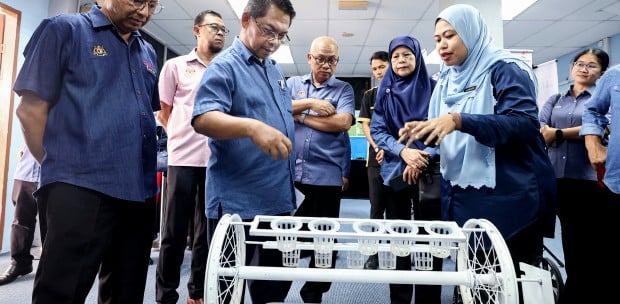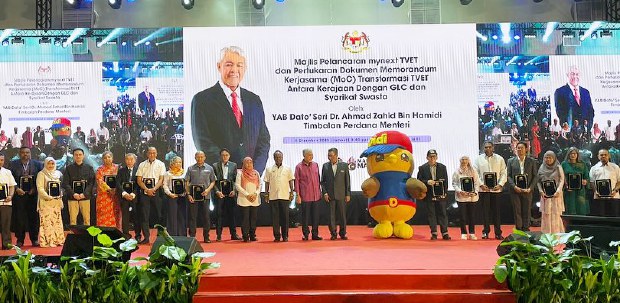KUALA LUMPUR: The government has signed 10 Memoranda of Agreement (MoA) with private and Government-Linked Companies (GLCs) in an effort to coordinate and improve the ecosystem of the country's Technical and Vocational Education and Training (TVET).
Human Resources deputy minister Mustapha Sakmud said the government's move to involve GLCs and private companies was to avoid duplication and waste in the implementation of TVET programmes as was agreed at the National TVET Council meeting on Feb 7.
He said the government was giving serious attention to improving the implementation of TVET programmes.
"This is to address issues such as the provision of infrastructure and training facilities, skills mismatch and unemployment among TVET graduates.
"This involves TVET institutions in various TVET provider ministries and coordinated through the National TVET Council," he said during the question and answer session in the Dewan Rakyat today.
He said this in response to a question from Onn Abu Bakar (PH-Batu Pahat) who wanted to know when will the coordination of TVET training between the Education Ministry and other ministries will be carried out following the occurrence of many overlapping courses, leading to a waste of human and financial resources.
Mustapha said through the initiative, GLCs and identified private companies will be involved in the implementation of the TVET programmes, in terms of the curriculum development and training materials, as well as sharing of equipment and facilities, expertise and financing.
To a supplementary question from Onn about the ministry's efforts in inculcating the cores of Madani Malaysia in the TVET programmes, he said this would be carried out by updating the syllabus and learning modules in TVET institutions in an effort to produce 35 per cent of skilled workforce through the TVET programmes by 2030.
He said TVET programmes also focused on inculcating positive values and morals, as well as technical skills.
"Apart from that, the six pillars of Malaysia Madani are used as the 'guiding principle' in the administration of the TVET industry, for example, to ensure the sustainability of the TVET programme, the industry needs to play an active role in providing the necessary machines and expertise to TVET trainees to produce Madani technocrats to lift the country's dignity and income," he said. – Bernama





